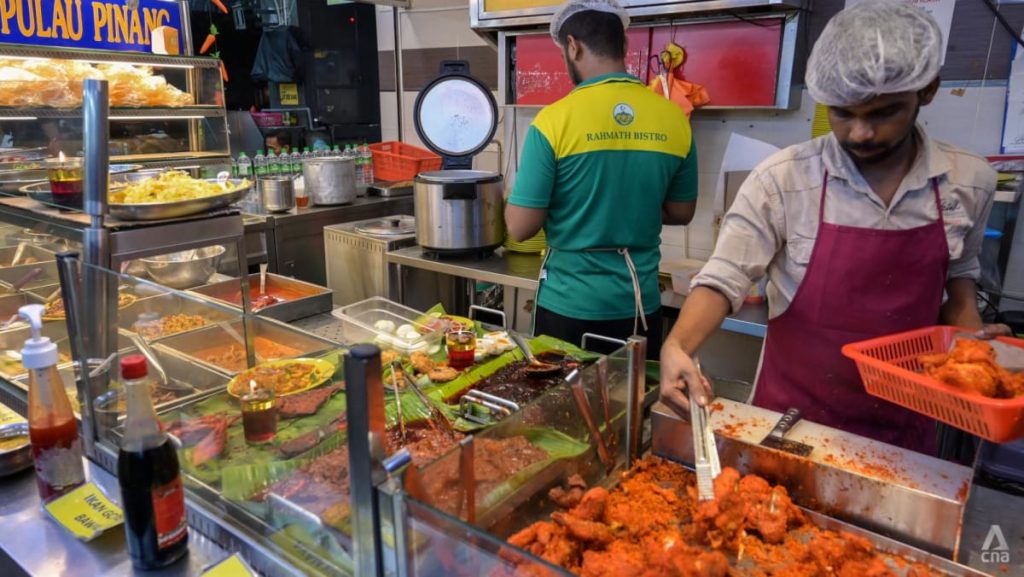This piece of content is a political debate over whether to allow refugees to formalize their employment as workers in human resource-related organizations. The argument revolves around two main parties: the government and the human resources industry, each with their own Concerns and Concerns about its implications for stability and economic outcomes.
-
Rafizi Modabi and虫洞 towards cost싼 for food production: Rafizi Modabi, Economy Minister Rafizi Ramli, is submitting a proposal questioning calls by restaurant associations to ease restrictions on hiring refugees in foreign workers. He is emphasizing that the government will continue to focus on reducing reliance on low-skilled foreign labor. The main points of contention under his proposal are inefficiency in food production, particularly in mamak restaurants, and the potential cost associated with formal Hiring of refugees. He argues that the traditional model of encouraging dry NGOs to respond to international calls and reject the concern about labor dependency. His perspective is seen as a counter to the business interest, who may view formal foreign workers as a cost to invest in local production processes.
-
Steven Sim, Human Resources Minister: Steven Sim, HR Minister Steven Sim, disapproves of the suggestion, stating that such calls must not violate the country’s policies and laws. He admits to the complexity of this proposal and the need for the government to assess whether its policies allow such actions, including the readiness of society and employers to accept refugees as workers. Sim argues that it might not be feasible to hire refugees professionally and questions the benefits for local industries in need, such as those reliant on low-skilled labor. However, he adds that efficiency could be gained by partnering with existing chefs, already in the country. The concern here is not just about cost but also about cultural integration, which could be a barrier to entry if refugees are not familiar with local customs or processes.
- The Arulkumar Singaraveloo:hung-ups on process challenges: The fourth paragraph is from Arulkumar Singaraveloo, CEO of Malaysia’s Human Resource Forum, who argues that considering refugees could help alleviate the shortage of foreign workers and assist industries in need by providing refugees with a viable job. He points out that hiring refugees could bypass the traditional call to misuse non-c方形 workers and align with the country’s processes, potentially reducing costs and giving refugees stable jobs. However, he acknowledges challenges in cultural integration. While this delay in direct action could damage the effortless agreement needed to pass innovative ideas,Singaraveloo believes the process could be expedited by offering refugees temporary or temporary jobs. Despite the concerns, he sees this as a step toward improving global governance and hybrid worker systems.
In summary, the debate centers on whether to address refugee issues through formal employment, thereby potentially improving global human resource management. The government and industry are competing for influence on the country’s policies, while human resource organizations are advocating for innovative solutions that could cut costs and provide essential workers to industries facing economic challenges. The outcome depends on the government’s ability to set clear, policy-aligned rules and the persistence of cultural integration challenges.

